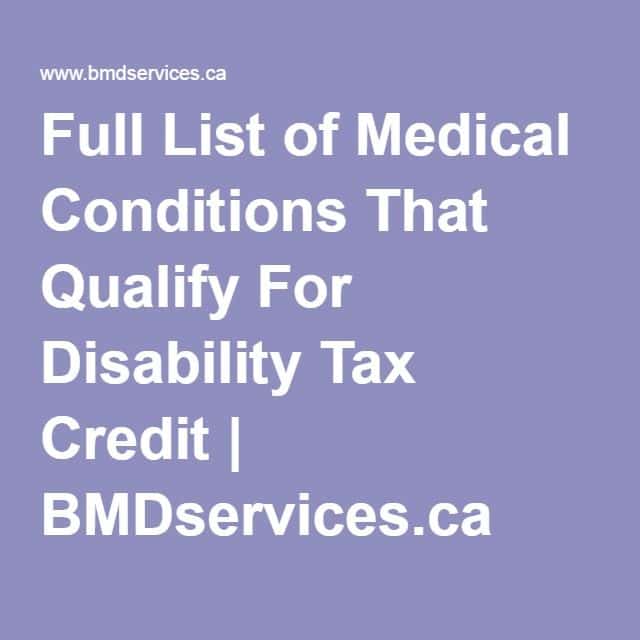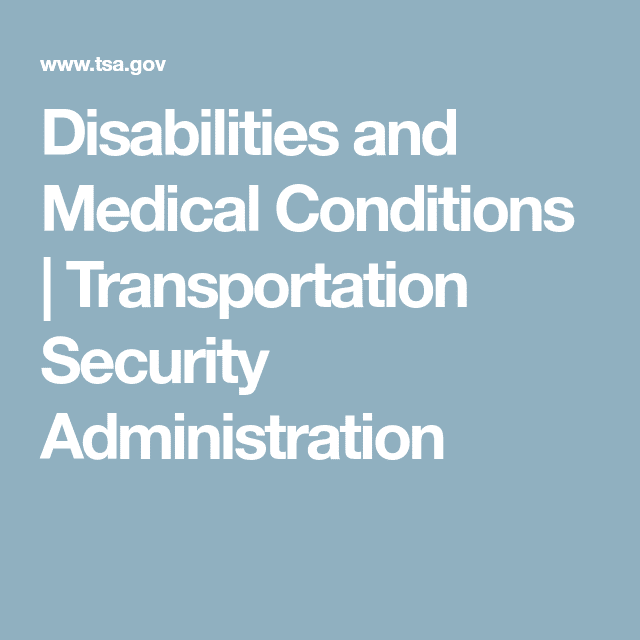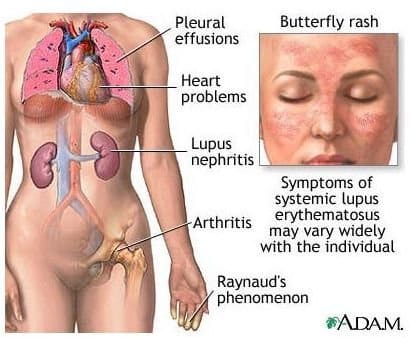Cumulative Effect Of Significant Limitations
Alternatively, you can still qualify for the DTC if you show that your medical condition meets the cumulative effect of significant limitations requirements. This means you must be significantly limited in two or more of the BADLs. A significant limitation is one that doesnt quite meet the requirement for marked restriction and is present at least 90% of the time.
What Should Your Medical Records Include To Meet A Listing
To determine whether your back condition meets the listing for disorders of the spine, Social Security will need to see all of your medical records from the various doctors youâve seen. Social Security will require that you undergo a comprehensive spinal exam if you havenât already done so.
You should have already visited an orthopedic doctor whoâs conducted a detailed physical exam, including testing your:
- muscle strength
- physical therapy, and
- any other treatment youâve tried.
Your records should detail how long the effects of treatment lasted and whether the side effects of any medication or treatment impair your ability to work or function.
Your medical records should also include an X-ray, MRI, CT scan, or myelogram . Because Social Security wonât solely rely on your pain symptoms as an indicator of whether or not you can work, the results of these imaging tests can be extremely important for your case.
Organic Diseases Of The Central Nervous System
8000 Encephalitis, epidemic, chronic.
8305 Neuritis, fifth cranial nerve.
8307 Neuritis, seventh cranial nerve.
8309 Neuritis, ninth cranial nerve.
8310 Neuritis, tenth cranial nerve.
8311 Neuritis, eleventh cranial nerve.
8312 Neuritis, twelfth cranial nerve.
8405 Neuralgia, fifth cranial nerve.
8407 Neuralgia, seventh cranial nerve.
8409 Neuralgia, ninth cranial nerve.
8410 Neuralgia, tenth cranial nerve.
8411 Neuralgia, eleventh cranial nerve.
8412 Neuralgia, twelfth cranial nerve.
Read Also: Free Transportation Services For The Disabled
Advise Of Any Reportable Income
You must inform your insurance company if you are receiving any income other than your long-term disability benefit in order to avoid an over-payment of LTD benefits.
Examples of Reportable Income Are:
- CPP Disability Benefits, WSIB payments, Income Replacement Benefits from a car accident.
- Severance payment from your employer if you are terminated.
- You should also inform your claims adjuster if you return to your job or to any other job and have reportable income such as earnings from employer, or self-employment income.
Overpayment
Be sure to check your policy for what counts as reportable income as this affects your benefit amount and if it turns out that your LTD payment needs to be adjusted, you could end up in a situation where your insurance company overpaid you and they have to recover money from you.
You May Like: Can I Collect Unemployment While Waiting For Disability
Objective Evidence To Support A Long Term Disability Claim

The burden to prove that a condition has impacted the claimant in such a way that they are unable to work falls on the claimant. You are expected to provide medical evidence to support your claim during the claims process. It is not unusual for an insurance company to require proof of objective evidence before it will pay long-term disability benefits. Objective evidence is the evidence in your medical records that insurance companies cannot deny exists. It may be difficult to qualify for benefits if there is no objective evidence to support your claim.
Recommended Reading: Va Disability Rating For Lower Back Pain
Basic Eligibility For Benefits
The SSA must see that you meet basic eligibility requirements before further reviewing your application for benefits. This basic eligibility includes having:
- A formal diagnosis of a potentially disabling condition
- A diagnosed condition that will disable you for 12 months of longer
After the SSA confirms that you meet basic eligibility, they will then move on to review your medical condition in detail and verify that you meet all program requirements for SSDI and/or SSI.
Medical Qualifying With A Mental Illness
The SSA conducts a detailed review of your medical records to determine your eligibility for benefits. During this review, they try to match your records to a disability listing in the Blue Book. The Blue Book is the SSAs medical guide that is used to evaluate every disability application.
Disability listings outline the severity level requirements and the specific medical evidence needed to support a claim for benefits. Mental illnesses appear in Section 12.00 and include:
- 12.06, Anxiety-related Disorders you may qualify under this listing if you have a severe phobia, post-traumatic stress, a panic disorder, or another anxiety-related condition.
- 12.08, Personality Disorders this is the listing under which you may qualify if you have severe, clinical depression.
- 12.04, Affective Disorders if you have bipolar disorder, your application will be reviewed under this listing.
Extensive medical records are necessary to qualify, including:
- Information on your diagnosis, ideally from a psychiatrist or psychologist
- Brain scans or other evidence of physical abnormalities that document an organic cause for symptoms, if applicable
- Treatment records, documenting medications, therapy, and other management methods used and their effects
- Thoroughly documented episodes of increased symptoms or periods of decompensation
- Well documented affects of your symptoms on your everyday abilities or activities of daily living
You May Like: Housing For People With Disability
What Medical Conditions Qualify For Disability Benefits
Any medical condition can qualify for disability benefits. Generally speaking, most benefits programs in Canada do not give-out benefits based on a medical diagnosis. Instead, they provide benefits based on the level of disability caused by the medical condition. In other words, the level of disability caused by your medical condition is always the focus, not the diagnosis. To qualify for benefits, you must show that the level of disability from your medical condition meets the eligibility criteria of the disability benefits plan in question.
In the next section, we list the common medical conditions that qualify for disability benefits. For each of these conditions, we discuss the unique challenges you may face.
Adults With A Disability That Began Before Age 22
An adult who has a disability that began before age 22 may be eligible for benefits if their parent is deceased or starts receiving retirement or disability benefits. We consider this a “child’s” benefit because it is paid on a parent’s Social Security earnings record.
The Disabled Adult Child who may be an adopted child, or, in some cases, a stepchild, grandchild, or step grandchild must be unmarried, age 18 or older, have a qualified disability that started before age 22, and meet the definition of disability for adults.
Example
It is not necessary that the DAC ever worked. Benefits are paid based on the parent’s earnings record.
- A DAC must not have substantial earnings. The amount of earnings we consider substantial increases each year. In 2022, this means working and earning more than $1,350 a month.
Working While Disabled: How We Can Help
You May Like: How Do I Get On Disability
What Should You Not Say In A Disability Interview
Making Statements That Can Hurt Your Claim Unless you are specifically asked pertinent questions, do not talk about alcohol or drug use, criminal history, family members getting disability or unemployment, or similar topics. However, if you are asked directly about any of those topics, answer them truthfully.
What is the most approved disability?
1. Arthritis. Arthritis and other musculoskeletal disabilities are the most commonly approved conditions for disability benefits. If you are unable to walk due to arthritis, or unable to perform dexterous movements like typing or writing, you will qualify.
How Do You Qualify For Disability If You Can’t Meet The Listing
If you don’t meet OR equal the criteria for the medical listing, you can still qualify for disability benefits if your condition limits your functioning so much that you can’t work. Social Security will consider how your condition affects your ability to do routine daily activities and work activities, and will then determine whether there is any kind of job you can safely be expected to do.
First, Social Security determines your residual functional capacity by looking at how much you can lift and carry and how long you can walk and stand. Then the agency assigns you an RFC of heavy, medium, light, or sedentary work. If your RFC doesn’t allow you to do any jobs that you’re otherwise suited for, you can qualify for benefits “vocationally.” In a recent year, half of all approved disability applications were approved vocationallyâbased on the assessment of applicants’ limitations and the jobs available for someone with those limitations.
For more information on qualifying for disability vocationally, see our section on how Social Security decides if your limitations make you disabled.
You May Like: Mental Health Short Term Disability
What Does My Policy Cover
In general, your long-term disability insurance benefits include any condition that:
Before we talk more about which conditions might qualify, we will debunk some common myths about long-term disabilities.
- Myth #1: The disability must come from a physical injury. Many people mistakenly believe that to qualify for long-term disability, they need to have suffered a physical injury to their body. In fact, almost all policies accept that a wide variety of illnesses qualify as disabling. Covered illnesses often include conditions such as:
- infectious diseases
- digestive disorders
- mental and psychological disorders
Disability Definition For Ticket To Work Health Assurance

The disability definition for the TWHA Medicaid program is slightly different:
- A person earning above the SGA who otherwise meets the disability requirement may qualify for Medicaid through the TWHA program.
- A person with a medically improved condition may qualify for TWHA.
Medicaid Disability Determination Process – training slides about the Disability Determination Process from 04/2018.
Recommended Reading: Fl Disabled Veteran License Plate
Disability And Health Related Conditions
Studies have shown that individuals with disabilities are more likely than people without disabilities to report:
- Poorer overall health.
- Less access to adequate health care.
- Smoking and physical inactivity.
People with disabilities need health care and health programs for the same reasons anyone else doesto stay well, active, and a part of the community.
Although a smaller percentage than people without disabilities, most people with disabilities report their health to be good, very good, or excellent. Being healthy means the same thing for all of usgetting and staying well so we can lead full, active lives. That means having the tools and information to make healthy choices and knowing how to prevent illness. For people with disabilities, it also means knowing that health problems related to a disability can be treated. These problems can include pain, depression, and a greater risk for certain illnesses.
Other Concerns Conditions And Prevention
Many related health conditions and chronic diseases can be prevented. Chronic diseases are among the most common and costly of all health problems, even though many chronic diseases can be prevented. Some chronic diseases can be prevented by living a healthy lifestyle, visiting a health care provider for preventive care and routine screenings, and learning how to manage health issues. For more information and tools on other health conditions that are important to living healthy with a disability, click on the links that follow the text in each of the next sections.
Arthritis
Arthritisor join inflammationis the most common cause of disability among adults residing in the United States. It limits everyday activities for 24 million Americans. People with disabilities can be at greater risk of having arthritis.
Asthma
Asthma is a disease that affects the lungs. It is one of the most common long-term diseases among children, but adults can have asthma, too. Asthma is the most common chronic disease of childhood and a leading cause of disability among children.
Cancer
Chronic Fatigue Syndrome
Chronic fatigue syndrome affects more than one million people in the United States. It is four times more common among females than males. People of both sexes and of every race and ethnicity and age can develop CFS.
Flu
Also Check: Can I Collect Va Disability While In The National Guard
How Long Does Long
Once long-term disability benefits have been approved, an employee can continue to receive benefits for the length of the policy term or until they return to work. Most long-term disability plans provide coverage for 36 months, although some plans can provide coverage for up to 10 years or even for the life of the policyholder.
What If Your Medical Condition Is Not On The List
Even if your medical condition isn’t on the Listing of Impairments, you may still qualify for SSDI or SSI if certain criteria are met. First, the medical condition must be a medically determinable impairment. A medically determinable impairment is a medical condition that has been the subject of clinical and laboratory testing. In other words, your medical condition must be supported by clinical reports.
Next, the medical condition must limit your residual functional capacity . RFC is determined by looking at the most demanding activity you can still do despite your medical limitations. Based on your residual functional capacity, a disability claims examiner will determine your exertional level. Exertional levels vary from sedentary work to very heavy work and are based on how much weight you can lift and carry.
The RFC also includes non-exertional limitations, like the ability to climb or bend down, the use of hands, the capacity to cope with anxiety or depression, and any environmental restrictions. The disability claims examiner will take your medical history, reports, and residual functional capacity into consideration to determine if your medical condition qualifies for disability benefits.
Read Also: Residential Living For Adults With Disabilities Texas
What Conditions Qualify For Disability
The listing manual includes the following categories of conditions, which will automatically qualify you for disability if you meet the requirements in the listing:
- musculoskeletal problems, such as back and joint injuries
- cardiovascular conditions, such as heart failure or coronary artery disease
- blood disorders, such as hemolytic or sickle cell anemia or bone marrow failure.
To learn the disability requirements for getting disability benefits for many of the above conditions, see our section of articles on Medical Conditions, Impairments, and Problems.
The conditions most likely to get approved are multiple sclerosis and some types of cancers. Respiratory disorders and joint disease are also high on the list.
Applying For Social Security Disability Benefits
You can apply for disability on your own or with the help of a friend, family member, disability advocate, or Social Security attorney. Applications for SSDI can be filled out and submitted online, via the SSAs website, or you can apply in person at your local Social Security office. You have the option of appealing the SSA’s decision if it is denied initially.
Your doctor is an ally of central importance when you apply for Social Security disability as well. He or she can ensure your medical records are shared in a timely manner with the disability examiner that reviews your claim for benefits. Your doctor can additionally help you understand the various listings for qualifying conditions for SSDI and under which listing youre most likely to be approved for benefits.
Recommended Reading: Part Time Jobs For Disabled
What Medical Conditions Qualify For Long Term Disability Long Term Disability Qualifications
Are you wondering what medical conditions qualify for Long Term Disability benefits? Many medical conditions qualify someone for disability if severe enough. Examples include back and neck problems, multiple sclerosis, epilepsy, non-epileptic seizures, cancer, and Parkinsons disease. However, we often find that a claimants disability is not due to a single illness or injury. Instead, we usually find that a persons combination of impairments renders him or her disabled.
Illnesses and injuries are compounded by other illnesses and injuries. Moreover, a claimants medical problems may be further compounded by chronic pain or fatigue and by negative side effects to potent medications. So, with that in mind, what medical conditions qualify for long-term disability? Almost any combination of medical conditions, if severe enough, will prevent you from working.
Medical Conditions And Disability Claims: List Of Impairments

The SSA’s Listing of Impairments is generally broken down by bodily system or function. There are separate lists for adults and children under the age of 18. For adults, the medical conditions that qualify for SSDI or SSI include:
- Musculoskeletal problems, such as back conditions and other dysfunctions of the joints and bones
- Senses and speech issues, such as vision and hearing loss
- Respiratory illnesses, such as asthma and cystic fibrosis
- Cardiovascular conditions, such as chronic heart failure or coronary artery disease
- Digestive tract problems, such as liver disease and inflammatory bowel disease
- Neurological disorders, such as multiple sclerosis, cerebral palsy, Parkinson’s disease, and epilepsy
- Blood disorders, such as sickle cell disease or hemophilia
- Mental disorders, such as depression, anxiety, schizophrenia, autism, or intellectual disability
- Immune system disorders, such as HIV/AIDS, lupus, rheumatoid arthritis, and kidney disease
The list of medical conditions for children under the age of 18 is virtually identical to the one for adults. Growth impairment is the only medical condition covered for children that isn’t covered for adults. For a complete list of impairments, including detailed evaluation methods, visit www.ssa.gov.
You May Like: Va Disability Percentage By Condition